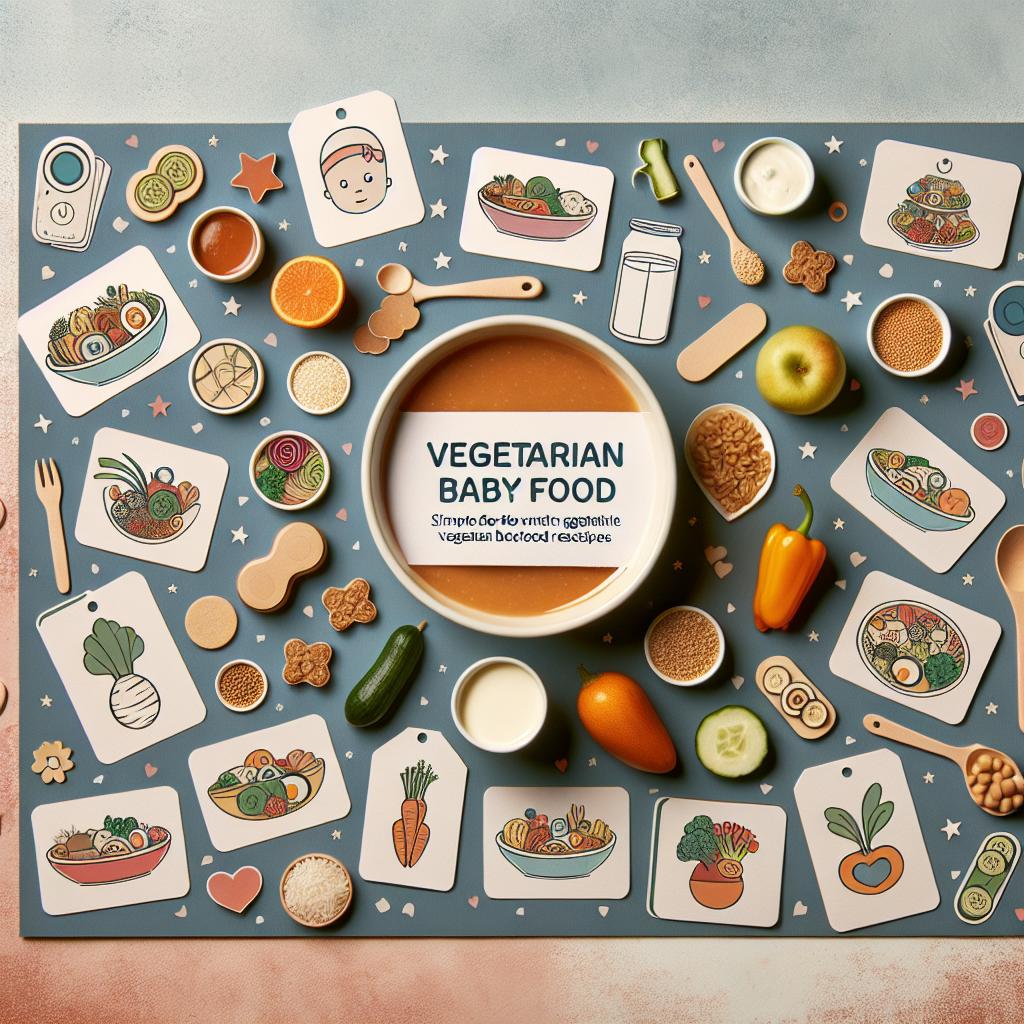A Beginner’s Guide to Vegetarian Baby Food Recipes
As parents, we strive to provide our little ones with the healthiest food possible. Choosing vegetarian baby food recipes doesn’t mean compromising on nutrition; in fact, it often means the opposite. From fruits and veggies filled with vitamins to grains packed with fibre, vegetarian meals can offer a variety of healthy options for your baby.
Nutritious Meals Matter
It’s crucial for your baby’s development and growth to consume nutritious meals. A balanced diet contributes to a strong immune system, healthy weight and height development, and overall brain growth. Vegetarian baby food recipes can be an excellent way to ensure your child gets a valuable mix of nutrients. So, what does a balanced vegetarian diet for a baby look like?
Components of a Balanced Diet
- Proteins: Plant-based proteins are abundant in foods like beans, lentils, and green leafy vegetables.
- Fats: Fats are essential for your baby’s brain development. Avocado, nuts, and seeds are excellent sources of healthy fats.
- Carbohydrates: Whole grains such as oats, brown rice, and whole grain bread provide energy and fibre.
- Vitamins and minerals: Fruits, vegetables, and grains are packed with essential vitamins and minerals.
Here is a detailed guide on how to maintain a balanced vegetarian diet.
Easy-to-Make Vegetarian Baby Food Recipes
Preparing homemade baby food is not as daunting as it may seem. Here are a few easy-to-make vegetarian baby food recipes your child will love:
- Avocado and Banana Puree: This puree is an excellent source of healthy fats and potassium. All it takes is mashing a ripe banana and avocado together until smooth.
- Sweet Potato and Lentil Mash: A powerhouse of protein and vitamin A, this delicious mash requires cooking sweet potato and lentils until soft, then blending them together.
- Broccoli, Pea and Pear Puree: Packed with vitamins C and A, simply steam these ingredients and blend until smooth.
For more creative and yummy recipes, check this resource.
Moving Forward
Your baby’s early nutrition plays a significant role in their overall development. Offering them a balanced vegetarian diet filled with nutritious meals can lay the foundation for healthy eating habits as they grow. However, always consult with your pediatrician before making any significant dietary changes.
Here you will find additional tips on how to prepare easy and healthy meals.
Embracing Vegetarianism for Babies
Moving towards a vegetarian lifestyle from an early age may encourage your little one to maintain healthy eating habits as they grow. Vegetarianism is not just a diet but a step towards eco-friendly living that can be instilled in your child from a young age. It is important, however, to ensure that vegetarian meals are prepared mindfully so that they remain nutrient-rich.
An inspiring read for adopting a vegetarian lifestyle can be found here.
Foods to Avoid
While the array of vegetarian foods is wide and varied, it’s crucial to avoid some food items when creating food for babies, including:
- Raw honey: Babies under one year should not be given raw honey due to the risk of bacterial spores that can cause botulism.
- Whole nuts: Whole nuts are a choking hazard for babies and children under age five. It’s safer to provide nuts in a ground or butter form.
- High sodium foods: Babies’ kidneys can’t handle high amounts of salt. It’s ideal to lessen or eliminate added salt in their foods.
Infusing Variety in Vegetarian Baby Feeding
Making baby food interesting and fun is key to creating a positive perception about eating. Colorful fruits and vegetables, different textures achieved through various cooking methods, and introducing new flavors every now and then can keep your baby interested in their food.
Blunders to Avoid
Feeding your baby requires patience and understanding. Some common mistakes to steer clear of are:
- Forcing food: If your baby turns their head away, close their mouth or cry, they’re probably not hungry or don’t want to eat at the moment. Always respect their cues.
- Ignoring allergies: If your child has any signs of food allergy, such as itching, runny nose, rash or difficulty in breathing, stop feeding immediately and consult a doctor. Always introduce new foods one at a time so that in case of an allergic reaction, the culprit can be easily identified.
- Not encouraging self-eating: Babies should be encouraged to eat on their own as early as possible. This helps develop their motor skills and promotes a sense of independence.
Need professional assistance for a vegetarian baby diet plan? Check out expert advice on here.
Disclosing Dietary Preferences
As your child grows, their eating habits may change. Keeping an open line of communication about dietary preferences and being open to necessary adjustments is crucial.
Mouth-watering vegetarian meal options for you and your family can be found here.
A Tasty Example
Serving a balanced diet that’s appealing is key for a baby. Here is a vegetarian example that is both delicious and nutritious: a Dutch Baby. It’s a kind of pancake made of eggs, wheat flour, sugar, and milk. It’s baked in the oven and often dusted with powdered sugar, fruits or maple syrup.
